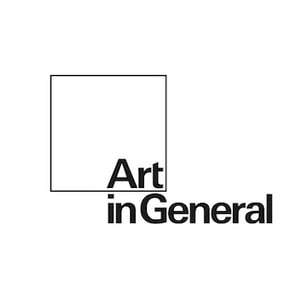
What is it to inherit an institution, with all its history, and an identity that exists at a given moment, but that is just one in a longer life of histories – an organic event unfolding over time, both before and after us? How can it be re-imagined, how do we shift and reflect? What values should it embody and where can we take it in the time that we are here?
Responsibility – and ‘response-ability’[i]– is paramount. From thinking about and maintaining the space the institution occupies, literally and philosophically, to the questions we ask, to the artists and programs that we support, the ‘institution’ becomes an embodiment of a set of values and interests. For us, this means a dedication to commissioning new work and research by artists, forming partnerships with those who can contribute critically to a larger dialogue around shared concerns, and carving out, as best we can in the oversaturation of art that surrounds us, a space for reflection, pause, and rethinking of practices. We are aware that with the speed of things, particularly where we are, to pause and reflect is a risk. Yet it is one worth taking to determine what is, and is not, of value, as surely it is this that marks out one institution from another.
An institution that we respect and admire has a fundraising program called Two Futures. The reasoning behind this concept is that in our current social and economic climate, an institution must have more than one future. One future is simply not enough. This clever strategy makes apparent the reliance on others to sustain and run an institution. A smart play on the notion of investing in the potential of an idea, Two Futures is a twist on the concept of the art institution as a commodity. Yet the thing that caught our eye was the idea of an institutional future in the first place; or rather, what are the possible futures for an institution?
Working within an institution that is more than 30 years old and that has shifted and changed alongside artists, we are confronted with this notion of multiple futures. The key is which future – or which futures – to take. Even while embarking on our current path, we are conscious of the potential ‘other’ paths that we might have taken. Had we pursued them instead, how different would the institution be five years from now – if such timeframes even matter in these shifting economic and cultural times – and what would be gained or lost? While the institution might be firmly established, the idea of its longevity without change, disruption, or redefinition is also long-gone. So the question remains: as the current caretakers of this institution, how might we incorporate aspects of the ‘possible’ alongside the real? And subsequently, how do we leave the space for alternative futures, ensuring that there are pathways and directions open to those who come after us?
Art in General is a nonprofit organization that assists artists with the production and presentation of new work. It changes in response to the needs of artists and informs and engages the public about their work. It was founded in 1981 by artists Martin Weinstein and Teresa Liszka in the General Hardware building—hence the name “Art in General.” In its 30 years, the organization has emerged as one of New York City’s leading nonprofit arts organizations. Today, Art in General fulfills its mission in a variety of ways, including the organization and presentation of exhibitions, hosting a national and international artist residency program, and through regular public programs and membership events.